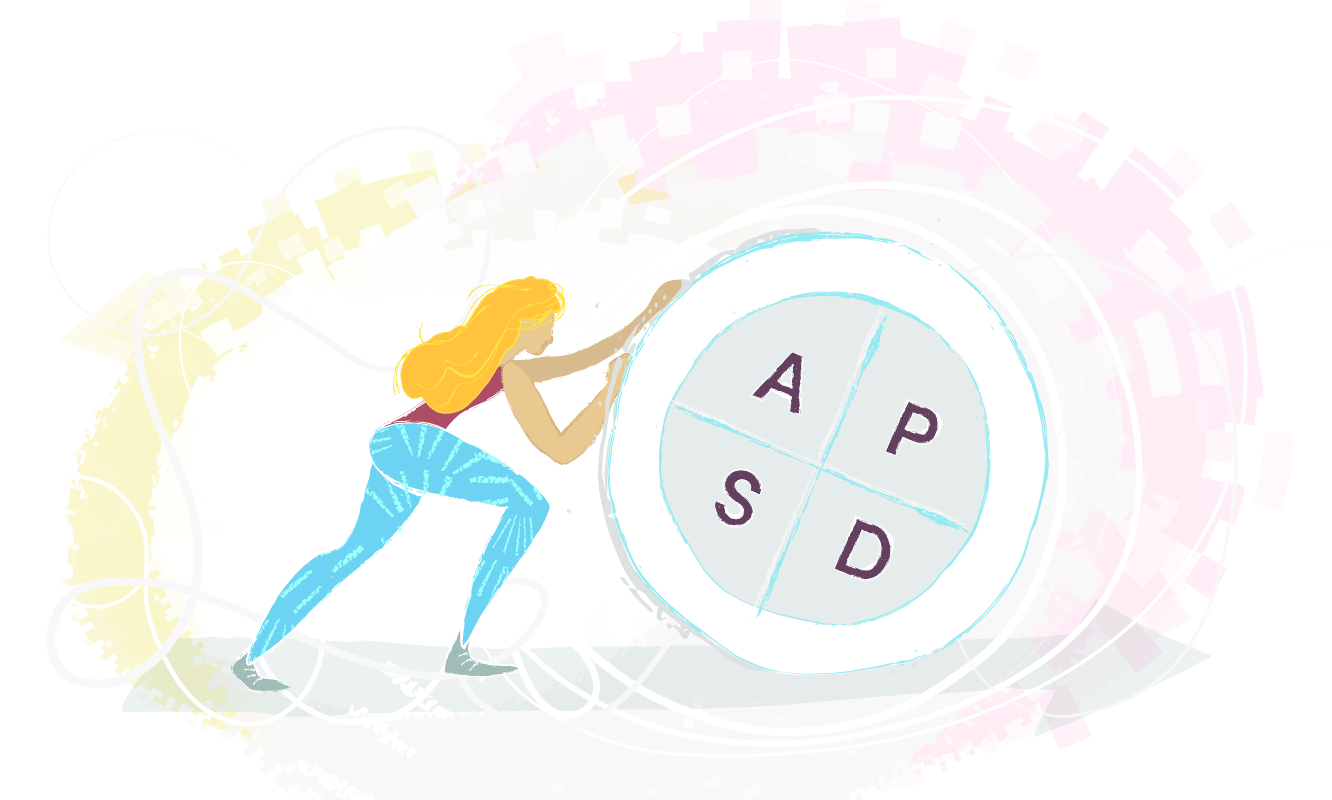Start improving with Life QI today
Full access to all Life QI features and a support team excited to help you. Quality improvement has never been easier.

Organisation already using Life QI?
Sign-up

You’ve started out on your Quality Improvement (QI) project – you now need to make sure you maintain project momentum in order to fully deliver on the project vision and maximise the impact it delivers. As improvement wins can sometimes be fragmented and can take time to bed in, you will need to keep encouraging your team to remain motivated and focused.
There are a number of ways you can do this. In this blog, we will be looking at various methods and resources, including the Health Foundation report: ‘The Improvement Journey’ which guides you through a number of steps to prepare you for your QI project and for creating a sustained improvement effort.
How do you get buy-in to your project at an early stage? The Health Foundation report sets out the six steps to help you prepare for your QI journey. Whilst their guidance is primarily in the context of an organisational improvement journey, the principles equally apply at the project level too. The third of the six steps recommends ‘securing wider organisational buy-in and creating a vision’.
Creating – and then communicating - your project vision is vital. The Health Foundation guidance also encourages you to use your vision whenever you can to encourage buy-in from teams. So whether its the project team or wider teams that will be effected by the improvement project - ensuring the vision is understood and bought into is vital for momentum and sustainability of changes.
Let’s look in a bit more detail at your project vision. By sharing the vision for your improvement project, you can really help to motivate staff and create engagement around the project. If you are able to harness the enthusiasm of a few key people in your organisation and encourage their vocal support for your project, you will be well on the way to creating lasting change and improvement. If you succeed in getting buy-in from your board and key influencers across the organisation at an early stage, you will lay the foundations for your project.
In order to introduce change, you need to prepare your teams and your organisation for the change by effectively involving them. You might want to take a look at our article ‘Collaborative working in healthcare and the importance of communication’ which is all about communicating in order to get the right kind of support from the right people. You can target and communicate with motivators, enthusiasts and people who share in your improvement vision.
Keeping your team well-informed about the project vision and its associated benefits is an important part of the improvement process. It helps maintain project momentum and bring about success.
It is worth deciding on the most effective communication channels for your project. Whether it will be email, video, social media, face to face – or a mixture of channels. Finding the right method(s) for your team might require a bit of trial and error. But once you’ve decided on your communication methods and trialled these, you also need to look at maintaining continuity. You can then build on feedback to improve communication within the team and outwardly to staff around the organisation.
There are specific tools available that can help you communicate well across QI projects. Solutions such as Life QI can help teams communicate easily and effectively.
The benefits that good communication with your team will bring are well worth the effort!
As we have explored, good communications play a big role in the success of a QI project. People in healthcare are often bombarded with communications from every angle. So tailoring your communications to your audience with regards to your QI project is really important.
You will need to define and agree on exactly what your team or staff really need to know and what they will want to hear. If it’s possible, you should streamline your communications, so the salient information is easily accessible and well-articulated.
You might want to take another look at our blog entitled: ‘Collaborative working in healthcare and the importance of communication’ where we drill down into communications in QI projects and how evidence has shown the importance of communicating to teams to create a successful QI experience.
When you start out on your QI journey, it’s really important that you prepare your team and organise meetings in advance, so that people know they will need to dedicate a certain amount of time and energy going forward.
You might also want to think about introducing the idea of skills ‘dosing’ to your team. In the NHS Improvement guide ‘Building capacity and capability for improvement: embedding quality improvement skills in NHS providers,’ the Institute for Healthcare Improvement (IHI) and NHS Improvement talk about the IHI’s ‘dosing’ method which identifies the type and ‘dose’ (level) of improvement skills which are needed to develop in different area of the organisation.
In 2014, East London NHS Foundation Trust’s started work on a successful ‘dosing’ approach, with the IHI helping them to identify objectives and map out plans for building QI capacity and capability. This method could be useful for your team in preparing them for setting aside time for QI projects going forward.
You could also think about using software platforms such as Life QI which help manage QI projects and can be a real help for people planning and participating in projects. As you can keep all your QI projects in one place, it’s really easy to monitor and manage them – as well as sharing and accessing QI information.
There is evidence about the use of recognition to motivate staff, which could help maintain momentum on your project. There is a clear link between engaged and motivated staff and the provision of high quality care, so you should bear this in mind for your QI project.
The Institute for Healthcare Improvement (IHI) states that ‘The most joyful, productive, engaged staff feel both physically and psychologically safe, appreciate the meaning and purpose of their work, have some choice and control over their time, experience camaraderie with others at work, and perceive their work life to be fair and equitable.’
Celebrating your team’s successes during your project can really help to support a great working environment and maintain momentum. Furthermore, recognising people for their commitment and perseverance will really help to motivate the team. You can use techniques borrowed from the IHI or follow other great examples of teams celebrating improvement journeys.
ELFT do really well at celebrating their QI teams’ successes and hold regular celebration events to share their QI journeys. They created a handy guide to celebrating learning, which helps set out what you wish to recreate.
You might also want to take a look at our article ‘Reward and recognition as motivators in healthcare’ where we focus on what you can do to celebrate and recognise incremental improvements during your project. The ‘Improving Joy in Work’ framework goes into further depth and sets out great ways of recognising teams and efforts.
We hope that these techniques and resources give you some good ideas to help you to maintain project momentum. We wish you all the very best of luck with your QI project!
Full access to all Life QI features and a support team excited to help you. Quality improvement has never been easier.

Organisation already using Life QI?
Sign-up